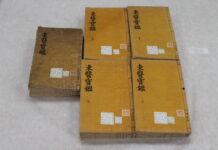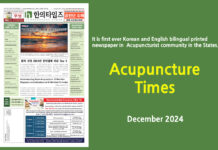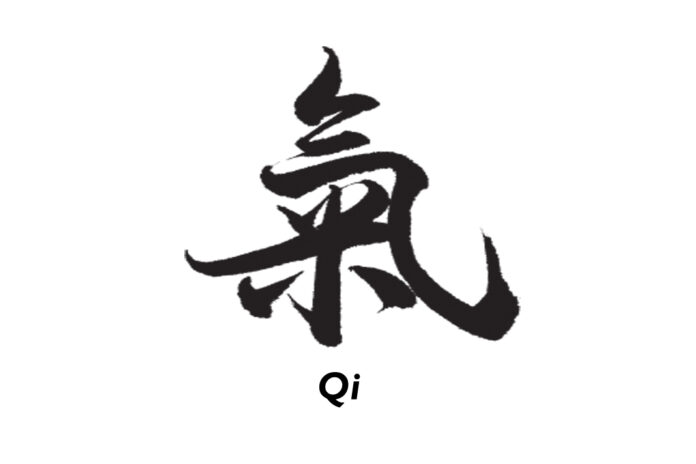Written By Jun Heo(許浚, 1539~1615), Translated by Namil Kim, Wung Seok Cha et al., Published by Ministry of Health & Welfare (Korea)
06 The Origin of Life Qi 生氣之原 생기의 근원
① The Classic of Difficult Issues (難經) says, “The twelve meridians are all connected with the origin of life qi. The origin of life qi refers to the lively qi of the kidneys. It is the basis of the five viscera and six bowels, the root of the twelve meridians, the door to breathing, and the source of the triple energizers. It is also said to be ‘the spirit that blocks out pathogenic qi’. Therefore, qi is the basis of the human body.”
② It also says, “CV6 and the cinnabar field are the actual sources of life qi. CV6 is 1.5 chon below the navel. The cinnabar field is also known as CV4, and it is 3 chon below the navel.”
07 Qi Is the Root of Respiration 氣爲呼吸之根 기는 호흡의 뿌리이다
- ① Complete Compendium of the True Principles of the Golden Elixir (正理) says, “When a person is first born, he/she breathes along with his/her mother inside the mother’s womb. When the umbilical cord is cut off after the baby is born, a minute amount of life-giving qi is gathered below the navel. Because qi is of the highest importance to humans, there is nothing that
precedes respiration. The eyes, ears, nose, tongue, body, and consciousness. [These are called the six desires]. Are all derived from qi. If there is no qi, a person cannot perceive sound, color, fragrance, taste, tactile sensation, and the present condition. Exhaling qi is connected to the root of Sky, and inhaling qi is connected to the root of Land. Qi circulates within the body 810 jang [1 jang (丈) 3.2m] a day.” - ② The Book of Changes (周易) says, “That which opens once and closes once is called Byeon (變), and that which comes and goes endlessly is called Tong (通).” Cheng Yichuan said, “In nurturing the body, breathing air in and out is the key point of changes: opening and closing. He also said, “Opening, closing, going, and coming are all apparent in breathing.” Zhang Hengju said, “A person’s respiration is the image of the strong and the weak colliding with each other and also the image of the Geon trigram (乾卦; which means the sky in the Book of Changes) and Gon trigram (坤卦; which means the land in the Book of Changes) opening and closing.” Zhu Ziyang, in his writing Discipline of Controlling the Breath (調息箴), said, “Opening and closing spontaneously is simply amazing. Who would manage it? It works well without management.”
- ③ Token of the Agreement of the Three (參同契) says, “There is no settled location to yin and yang, and they flow all around the six empty spaces in the hexagram. The six empty spaces refer to the six strokes of the trigram. It is compared to the upward and downward movements of qi when one exhales and inhales. If this is done for a long time, spirit is gathered and respiration is stabilized, leading to a change. Releasing qi by exhaling is the same as yang being opened, and admitting qi by inhaling is the same as yin being closed. Yin and yang of the human body are like those of the universe. If respiration can be controlled upward and downward, enabling qi to flow endlessly, the mysteriousness of opening, closing, coming, and going is all in my body.” Yuan Hezi said “The saying ‘The human body is in most parts like the Universe.’ Indicates this.”
- ④ Zhuang Zhou said, “A wise man breathes with the heel of his foot, and an ordinary person breathes with his throat. If qi is in the lower energizer, respiration is long, and if qi is in the upper energizer, respiration is short.” The meaning is similar to this.
08 Methods of Breathing of the Embryo 胎息法 태식법
- ① Commentaries of the Perfected (眞詮) says, “When a fetus is in the womb, it does not breathe with its mouth and nose. The umbilical cord is connected with the mother’s conception vessel. The conception vessel itself is connected to the lungs and the lungs to the nose and hence the fetus exhales when the mother exhales and inhales when the mother inhales. Qi goes in and out through the navel this way.” Supporting the Sky (天台) says, “When spirit comes out, relying on life, it joins with the essence of the body at the navel, becoming the root.” Like this, when a baby is born, it is connected to the mother solely by the navel. Therefore, when learning the methods of breathing control (調息法) for the first time, one must think that his/her breath comes out from his/her navel and goes into the navel again. After leveling the breath off, as if he/she is in the womb, one does not use ones mouth and nose and uses only the navel when breathing; hence the name the breathing of the embryo (胎息). At first, one holds his or her breath and breathes with the navel, counting to 81 or 120 before exhaling. Exhaling should be done softly so that even if a feather of a wild goose is put on one’s mouth and nose, it does not move. If one can count to 1000 by practicing daily and gradually increasing the count, he/she gets younger daily even after he/she becomes old. Whenever the weather was hot, Ge Xianwong (葛仙翁) used to dive into the bottom of a deep pond and come out after 10 days; this was because he could hold his breath and breathe by the way of the breathing of the embryo (胎息). Nevertheless, if one only knows how to hold his/her breath and not how to breathe by the way of the breathing of the embryo (胎息), it is only futile.
- ② The Nurturing the Sprit (養性) says, “The breathing of the embryo (胎息) is breathing freely at one’s will like a baby in the mother’s womb, having the breath reach up to the qi bar and down to the lower cinnabar field, and still not using the mouth and nose. That is how one can hold his breath and not come out from a deep pond for ten days.”
- ③ He also said, “The point of self-reflection is to tranquilize the spirit, stabilize the heart, not allow disturbing thoughts to arise or evil and absurd things to enter the body. When qi returns to the navel, it becomes respiration; when spirit goes into qi, it becomes the fetus. It is also called taeeul (太乙, the meaning of great and slow movement) because respiration and fetus get mixed and become one.
09 The Key to Regulating Breathing 調氣訣 숨을 고르는 비결
- ① Peng Zu said, “The method of harmonizing spirit and pulling qi is as follows. In a silent room, close the door, put the bedding to a comfortable state, and warm up the bed. Adjust the pillow to a height of 2.5 chon, lie down face up, close the eyes, and hold the breath inside the chest. Stick a feather of a wild goose on the nostrils, breathe 300 times, not making it move. At this time, nothing should be heard through the ears, seen with the eyes, or thought in the mind. This prevents coldness or heat from entering the body and the poison of bees or scorpions will not harm the body, enabling one to live until he/she reaches 360. This is the stage matched with a true man.”
- ② The Nurturing the Sprit (養性) says, “The human body is empty and only qi moves in the body. If one can control his/her respiration, various diseases can be prevented. Therefore, in order to be deft at life-nurturing, one must be familiar with the methods of breathing control. From midnight to noon, one can level off one’s breath because qi springs up, but from noon to night, one cannot level off one’s breath because qi disappears. When leveling off breathing, one should spread a thick and smooth blanket over the bed and lie down on one’s back. The height of the pillow should be level with the body. Stretch out the arms and legs, put both hands from the body at a distance of 4~5 chon, clench the hands, set the legs apart at a distance of 4~5 chon, continuously snap the upper and lower teeth together, and swallow the saliva. Pull breath from the nose to the stomach. Stop if it becomes full, and breathe in more if there is enough room. Let out the breath a little bit at a time if time passes and it becomes difficult to hold. After a long time, inhale with the nose a little bit at a time, and exhale with the method mentioned earlier. If one can hold his/her breath and count to 1000 with his/her mind, one can be said to have reached the stage of the hermit. When the weather is cloudy, rainy, or extremely cold or hot, one must not inhale and only persevere.”
- ③ It also says, “Exhaling is letting out stale qi: dead qi. Inhaling is accepting fresh qi: live qi. Therefore, Laozi n (老子) said ‘The doors of hyeonbin (玄牝, a term from Laodan) [The nose is called hyeonmun (玄門) and the mouth binho (牝戶)] is the root of the Universe. It is not tiresome to use them continuously without rest.’ It means that the qi of yin, yang, death, and the life of the universe goes in and out of the mouth and nose.”
- ④ Complete Compendium of the True Principles of the Golden Elixir (正理) says, “The secretive method to protecting qi lies within preserving the essence intact. Also, one should refrain from sleeping excessively. When a person walks or runs, breathing becomes short and the voice hoarse. One’s breathing becomes coarse and begins to snore when one sleeps too much. However, when one sits down silently, his/her breathing becomes even and gentle.”
- ⑤ The Medical Mirror of Past and Present (醫鑑) says, “Essence qi of a person starts dwindling away when one becomes sixteen years of age. Essence qi is not only damaged by sexual desires but also responding to, looking at, listening to, and speaking to an object all exhaust the source of essence qi. This is why Buddha faces the wall and sits in Zen meditation. This prevents the spirit qi from being depleted by solidifying the foundation and training oneself with penance. This is the way to living a long life.”
10 The Lungs Govern Qi 肺主氣 폐는 기를 주관한다
- ① The Inner Classic (內經) says, “The lungs govern qi.” It also says “All qi belong to the lungs.” In Annotation, “There are 6 leaves and 2 ears to each lung. There are 24 holes in the leaves, through which yin and yang, clear and turbid qi divide and spread.”
- ② It also says, “The lungs stores qi. When qi is excessive, one becomes breathless and suffers from dyspnea. When qi is insufficient, breathing is smooth but weak.”
- ③ Divine Pivot (靈樞) says, “CV17[CV17 is the room of the lungs] is the sea of qi. Therefore, when qi is excessive, the chest and face all become reddish, and when qi is insufficient, one becomes weak and cannot speak much.”





































